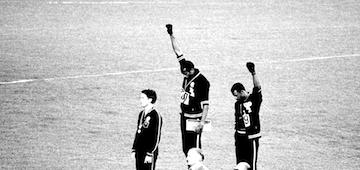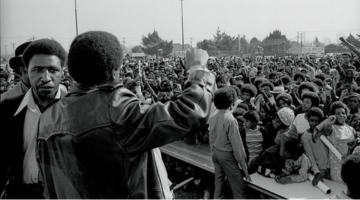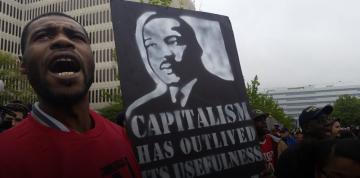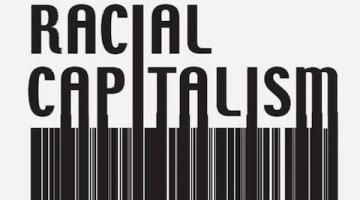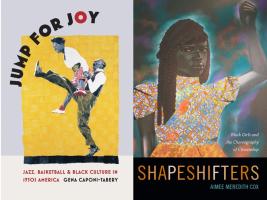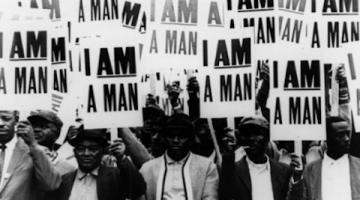In this series, we ask acclaimed authors to answer five questions about their book. This week’s featured authors are Nathan Kalman-Lamb and Derek Silva. Dr. Kalman-Lamb is assistant professor of sociology at University of New Brunswick. Dr. Silva is associate professor of sociology at University of King's College. Their book is The End of College Football: On the Human Cost of an All-American Game.
Roberto Sirvent: How can your book help BAR readers understand the current political and social climate?
Nathan Kalman-Lamb and Derek Silva: In a way, the book can be understood as a case study in how racial capitalism—often quite an abstract and theoretical concept—concretely impacts the lives of people in the United States. We use the term ‘structural coercion’ to explain how participation in college football, an incredibly dangerous and exploitative site of labor that is also one of the nation’s most popular cultural forms, is significantly predicated upon a desire to improve life chances. Precisely because of the ongoing history of slavery/segregation in the United States, Black Americans continue to disproportionately be denied access to higher education and attendant forms of opportunity. College football provides that access—at an almost incalculable cost. The real tragedy is that participation is actually a rational choice, despite those costs, precisely because of how significant structural barriers continue to be.
What do you hope activists and community organizers will take away from reading your book?
By drawing on in-depth interviews with twenty-five former college football players, this book attempts to depict the myriad forms of harm and exploitation that define the sport. But what is perhaps most salient about this is that these forms of harm and exploitation are really not unique to college football; these are, in fact, the defining features of US racial capitalism. What we hope that those committed to transforming this society can see in reading this book is both the urgent need to organize college football players to improve the brutal conditions of their work on the gridiron and in the academy, but also the ways in which we need to build solidarity across communities both within the university between faculty, staff, students, and athletes and also between those in the university community and workers outside it. Part of the value for this of exploring the experience of college football players is that it exposes the reality that although these athletes are often perceived to be particularly privileged within the university community, a close look at the conditions of their lives reveals how dehumanizing racial capitalism is for everyone.
We know readers will learn a lot from your book, but what do you hope readers will un-learn? In other words, is there a particular ideology you’re hoping to dismantle?
In a way, this book is a polemic against the prevailing discursive and ideological justification for the entire system of college football: the idea that players ‘signed up for it.’ The idea that participation is a choice is simply an extension of the hegemonic liberal and neoliberal myth that the United States and the system of racial capitalism that shapes and defines it is a free and fair society. Nothing, in our view, could be further from the truth. In fact, our book is premised on the position that racial capitalism systematically produces forms of unfreedom by denying people access to the conditions required for human life to both sustain and flourish. Labor exploitation is conditioned on the fact that workers must sell their labor for a wage to survive. This is coercion, not agency. Our position is that college football can only exist in its current, highly exploitative form because those who participate do so for lack of better options like access to a free system of higher education.
Which intellectuals and/or intellectual movements most inspire your work?
This book has many influences. In perhaps the most fundamental sense, it is a work of Marxist scholarship in that it is grounded in a critique of unfree and exploited labor. The tools Marx provided continue to help us makes sense of labor in nearly every setting, and college football is no exception.
Yet, at the same time, Marx’s insights have been developed by other scholars in ways that nuance the analysis for particular social sites. We are beholden to Erin Hatton for her work on status coercion in contexts like college sport, which helps us understand why and how exploitation happens in contexts where a wage isn’t furnished. Likewise, we owe a great deal to the sociologist Jill Fisher for her critique of structural coercion in the context of medical research, which provided a helpful analogue that shaped the theoretical foundation of the book.
Perhaps most importantly, we owe a great deal to the tradition of racial capitalism theorizing from Cedric Robinson, Robin Kelley, Stuart Hall, Charisse Burden-Stelly, and so many others. It is impossible to accurately apply Marx’s ideas to the US context without accounting for the ways in which race has been used to hyper-exploit Black Americans. In particular, we owe a great deal to Billy Hawkins for inviting us to understand college sport as a site of continued plantation dynamics.
Which two books published in the last five years would you recommend to BAR readers? How do you envision engaging these titles in your future work?
Forgive us for not quire narrowing our list down to two books, but we think that these books would be of significant value for all readers because they have reshaped the ways in which we view both sport and racial capitalism. Each of these books offer unique and vital interventions that help shape our understanding of the nexus between racial capitalism, US imperialism, and American Football. While not reflective of the breadth of empirical or theoretical work in the area, each of these offers the reader a lens through which to explore the role that colonialism plays in how we understand and practice football and the athletic work (and laborers) that are sacrificed to the system.
Shaun M Anderson’s The Black Athlete Revolt: The Sport Justice Movement in the Age of #BlackLivesMatter (Rowman & Littlefield, 2023)
Erin Hatton’s Coerced: Work Under the Threat of Punishment (University of California Press, 2020)
Lisa Uperesa’s Gridiron Capital: How American Football Became a Samoan Game (Duke University Press, 2022)
Olúfẹ́mi O. Táíwò’s Elite Capture: How The Powerful Took Over Identity Politics (And Everything Else, Haymarket, 2020) and Reconsidering Reparations (Oxford University Press, 2022).
Michael Bennett and Dave Zirin’s Things That Make White People Uncomfortable (Haymarket, 2019)
Roberto Sirvent is the editor of the Black Agenda Report Book Forum.

